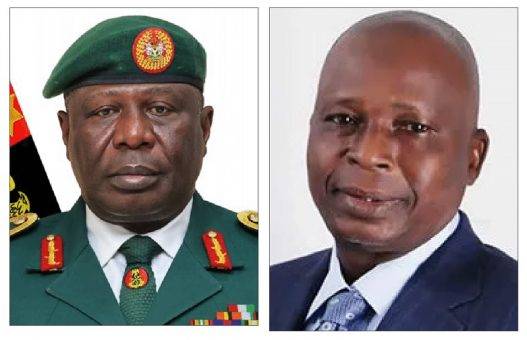Justice Obiora Egwuatu of the Federal High Court in Abuja has declared Sections 6, 7, 8, 9, 11, and 30 of the Money Laundering (Prevention and Prohibition) Act 2022 unconstitutional, null, and void as much as they relate to legal practitioners.
Theliberationnews gathered that the judgment was delivered in a suit filed by Abu Arome, a private legal practitioner, against the Central Bank of Nigeria, Economic and Financial Crimes Commission, Attorney General of the Federation, and Guarantee Trust Bank. Arome sought to bar the defendants from enforcing the provisions of the Money Laundering Act 2022 against legal practitioners.
Justice Egwuatu, in his ruling, granted all the reliefs sought by the plaintiff, effectively shielding legal practitioners from the application of the contentious sections of the Money Laundering Act.
Furthermore, the court held that the restrictions placed on the bank accounts operated by Arome’s law firm, with account numbers 0725****29 (Naira), 07***01443 (Pounds), 07***01436 (Dollar), and 0***1450 (Euro), based on a circular issued by the Central Bank of Nigeria, were unconstitutional, null, and void.
The plaintiff, Abu Arome, a legal practitioner operating under the name “The Counsel Legal Practice,” had filed an originating summons seeking the court’s interpretation of previous judgments by the Court of Appeal in Central Bank of Nigeria v. Registered Trustees of the Nigerian Bar Association and Federal Republic of Nigeria v. Chief Mike Ozekhome (SAN).
Arome contended that Sections 6, 7, 8, 9, 11, and 30 of the Money Laundering Act 2022, which purported to apply to legal practitioners, were unconstitutional, null, and void. He argued that these provisions conflicted with the Legal Practitioners Act, the Evidence Act, and the Rules of Professional Conduct for Legal Practitioners, which safeguarded the confidentiality of lawyer-client relationships.
The plaintiff also challenged the inclusion of legal practitioners and notaries in the definition of Designated Non-Financial Businesses and Professions under the Money Laundering Act. He asserted that this inclusion undermined the fundamental doctrine of legal professional privilege and client confidentiality.
Furthermore, Arome sought a declaration that the restriction placed on his law firm’s bank accounts by Guaranty Trust Bank, based on a circular issued by the Central Bank of Nigeria, was unconstitutional and illegal.
In his written address, the plaintiff’s counsel relied on the doctrine of stare decisis, urging the court to follow its earlier decisions in similar cases. They argued that the Legal Practitioners Act and the Evidence Act should take precedence over the inconsistent provisions of the Money Laundering Act.
The case, which had the Central Bank of Nigeria, the Economic and Financial Crimes Commission, Guaranty Trust Bank, and the Attorney General of the Federation as defendants, was expected to have far-reaching implications for the legal profession in Nigeria.












